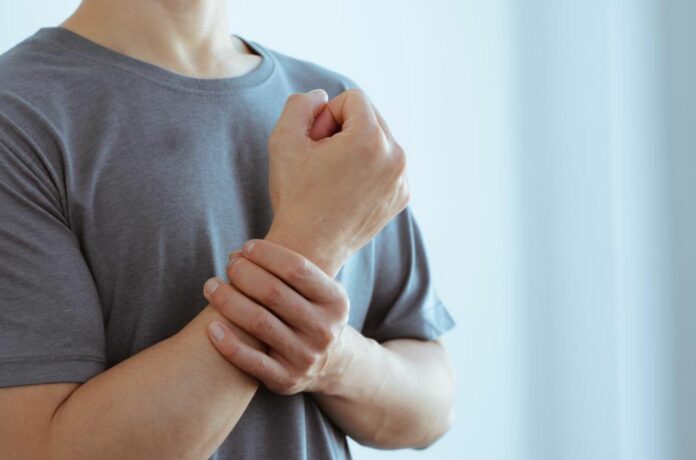Men, be warned: New Study Reveals a Lesser-Known Factor That Could Lead to Brittle Bones – and It Is As Important As Your Diet, Exercise, and Sleep.
Osteoporosis is a common condition that weakens, thins, and hardens bones, making them more likely to break. According to the National Institutes of Health, the disorder is more common in postmenopausal women and may increase the risk of fractures, particularly in the hip, spine, and wrist.
It is commonly referred to as a “silent disease” due to the fact that bone loss may occur gradually and unnoticeably. Individuals might not realize they’re suffering from osteoporosis until they experience a bone fracture, reduction in height, or a stooped stance.
In the United States, statistics from the National Osteoporosis Foundation indicate that osteoporosis affects approximately 10 million individuals, while an additional 44 million have diminished bone density, known as osteopenia, which predisposes them to develop osteoporosis.
Various factors contribute to the onset of osteoporosis. A notable one is the rapid loss of bone mass following menopause.
In men, bone loss often begins between the ages of 60 and 70.
Inadequate calcium intake and deficient vitamin D levels in the system can also trigger bone loss. The body requires sufficient calcium and other minerals for bone formation, with vitamin D playing a crucial role in assimilating calcium from food and integrating it into the bone. Furthermore, detrimental habits such as smoking and excessive alcohol consumption can expedite bone depletion.
Emerging research, unveiled at ENDO 2023 – the annual congregation of the Endocrine Society held in Chicago, Illinois, says that social isolation could have an adverse effect on bone well-being, as indicated by a study conducted on mice.
“Social isolation is a potent form of psychosocial stress and is a growing public health concern, particularly among older adults,” points out lead researcher Rebecca Mountain. “Even prior to the onset of the COVID-19 pandemic, which has significantly increased the prevalence of isolation and loneliness, researchers have been concerned about a rising ‘epidemic of loneliness.’”
Mountain highlighted that being socially isolated is linked with a heightened risk for a range of health issues in humans, such as mental health complications. Additionally, it’s associated with an overall increase in the incidence of disease and mortality rates.
“Previous clinical research has demonstrated that psychosocial stressors, and subsequent mental health disorders, are major risk factors for osteoporosis and fracture, which disproportionally affect older adults,” Mountain adds. “The effects of social isolation on bone, however, have not been thoroughly investigated.”
In their recent investigation, the researchers subjected adult mice to either solitary confinement (one mouse per enclosure) or group housing (four mice per enclosure) over a period of four weeks. Their findings indicated that solitary confinement led to substantial deterioration in bone health, including diminished bone mineral density, particularly in male mice, with female mice seemingly unaffected.
“Overall, our data suggest that social isolation has a dramatic negative effect on bone in male mice, but it may operate through different mechanisms or in a different time frame in female mice,” Mountain adds. “Future research is needed to understand how these findings translate to human populations.”
In addition to studying the impacts of social isolation on human datasets, her team of researchers will also endeavor to understand the biological processes through which social isolation leads to bone loss, utilizing mouse models for their investigations.
“Our work provides critical insight into the effects of isolation on bone and has key clinical implications as we grapple with the long-term health impacts of the rise in social isolation related to the COVID-19 pandemic,” Mountain remarks.
Image Credit: Shutterstock
